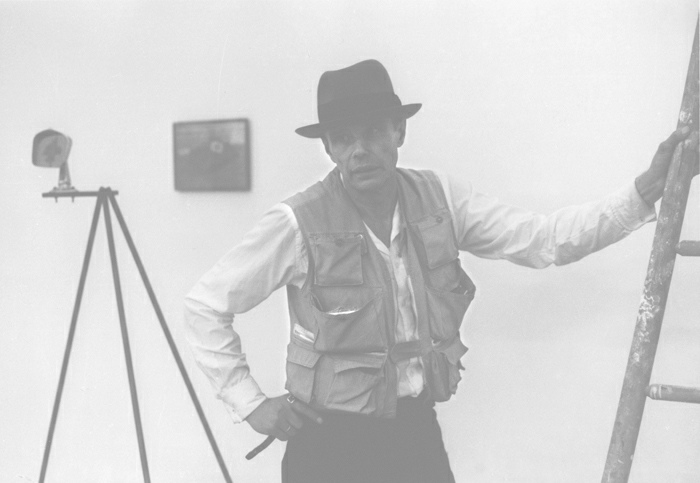Press Release
The state of North Rhine-

Beuys 2021 - 100 years of Joseph Beuys
State of North Rhine-Westphalia (Germany)
27.03.2021 - 03.2022

Joseph Beuys is one of the world’s most significant 20th-
The centenary programme runs from March 2021 to March 2022. Numerous exhibitions, actions and performances, plays and podcasts, concerts, lectures, conferences and seminars will explore the equally fascinating and controversial ideas of one of the most influential artists and polarizing figures of the 20th century. Visitors from all over the country and abroad are invited to examine Beuys’s significance for contemporary art and political thought, and to critically engage with both his legacy and his approach to the issues of most acute concern to us today: How might we think of democracy and freedom? How do the environment and the economy condition each other? How do politics and art relate in our time?
About Joseph Beuys
Joseph Beuys (born in 1921 in Krefeld, raised in Kleve, died in 1986 in Düsseldorf) was a draughtsman, sculptor, action and installation artist, teacher, politician and activist. Along with Marcel Duchamp, John Cage and Andy Warhol he is widely considered one of the most significant artists of the 20th century. He fundamentally altered the nature, materiality, language, boundaries and tasks of art. In his practice—universal in its scope—Beuys explored questions pertaining to humanism, social philosophy and anthropology. His attempt to come to terms with his participation in the National Socialist regime, his experiences as a soldier in World War II and his return to a morally compromised society had a profound influence on the evolution of his practice. Taking himself as a model for inner transformation, he sought to democratize himself and society at large, believing that the key lay in the creativity innate in all human beings. The extent to which he succeeded in achieving the transformation to which he aspired remains a point of substantial controversy. From 1964 onwards he no longer distinguished between his biography and his artwork, having come to view his life as material to be sculpted. This model became the point of departure for his theory of social sculpture, which culminated in 1982 with his documenta contribution 7,000 Oaks.
Joseph Beuys was unique among the artists of his time in his ability to interweave art with social processes and in his call for the adoption of his universalist conception of art as a creative, transformative force within politics, science, philosophy and economics. His far-
To discover the program of Beuys 2021.100 years of Joseph Beuys…

© ArtCatalyse International / Marika Prévosto 2021. All Rights Reserved
